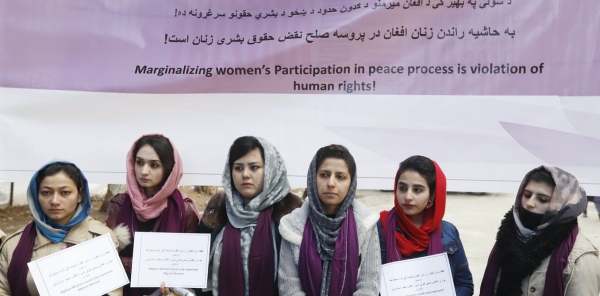The brief aims at highlighting how the pandemic is changing war scenarios worldwide and the importance of women’s full, equal and meaningful participation to an effective COVID-19 response and to peace-making effort. Moreover, it shows how the Women peace and security (WPS) agenda promoted by the United Nations (UN) can provide a critical framework for inclusive decision-making and sustainable solutions.
UN Women recognizes that the impact of the pandemic in conflict-ridden scenarios may exacerbate gender-differentiated consequences for women, increasing their exposure to domestic violence and contagion. Accordingly, in already tragic settings where women’s access to sexual and reproductive health is limited, the spread of COVID-19 poses exponential threats to their safety.
The brief underscores that despite the UN-Secretary General called for a global ceasefire to craft a global pandemic response in March, concrete improvements are yet to materialize. Concomitantly to Resolution 2532 adopted by the UN Security Council, where the need for a global truce is reinstated, the UN-Secretary General warned that the pandemic is exacerbating root causes of conflicts, eroding trust in public institutions and thus undermining worldwide conflict prevention attempts. In the face of these challenges, the UN draws our attention on civil society mobilization around the world through online platforms and social media. In particular, women have played a key role, creating activism networks calling for an urgent cessation of hostilities, inclusive ceasefire processes and comprehensive peace talks. Women’s importance for durable peace is embraced by the UN WPS agenda underpinned by 10 UN Security Council Resolutions. In this respect, UN women recognizes that the pandemic has brought into sharp relief how critical the WPS agenda is as a framework for effectively addressing the immediate impact of COVID-19 on conflict-affected populations as well as ensuring the sustainability of longer-term recovery, resilience and peace-making processes.
Women’s right and interest to be included in engagement for peace produces undeniable advantages. First, if history is any guide, when women participate in a critical mass they offer innovative perspectives and broaden the range of the debate, which increases the likelihood of addressing the root causes of the conflict as well as building community buy-in to the process and outcomes. Research suggests that when women’s inclusion is guaranteed, peace agreements are more likely to last. Moreover, while the success and sustainability of ceasefires is largely driven by the willingness of the conflict parties to seize the opportunity to pursue peace, the involvement of women’s civil society has been shown to apply political pressure on conflict parties and help shift dynamics. Against this background, UN Women remarks that women’s inclusion in formal, high-level mediation processes has long been difficult to achieve and consequently far from full or equal. As several UN-women commissioned researches suggest, without women’s civil society engagement ceasefires are not responsive to the gender differentiated needs, exasperating situations of fragility.
In the face of a pandemic showing no signs of retreat, UN Women offers recommendations to UN Member States worldwide to achieve women’s inclusion in peace-making processes. States are required to: maximize political advocacy efforts to strike inclusive peace processes; press for dedicated measures to promote women’s meaningful participation in formal negotiations; provide training and support to women engaged in negotiations; support multi-track peace processes where the participation of grassroots female movements is amplified; and integration of women’s perspectives in all gender-responsive conflict analysis, planning and process design.
To learn more, please read:
https://www.unwomen.org/-/media/headquarters/attachments/sections/library/publications/2020/policy-brief-covid-19-and-conflict-en.pdf?la=en&vs=4621
Author: Gianmarco Italia; Editor: Barbara Caltabiano







